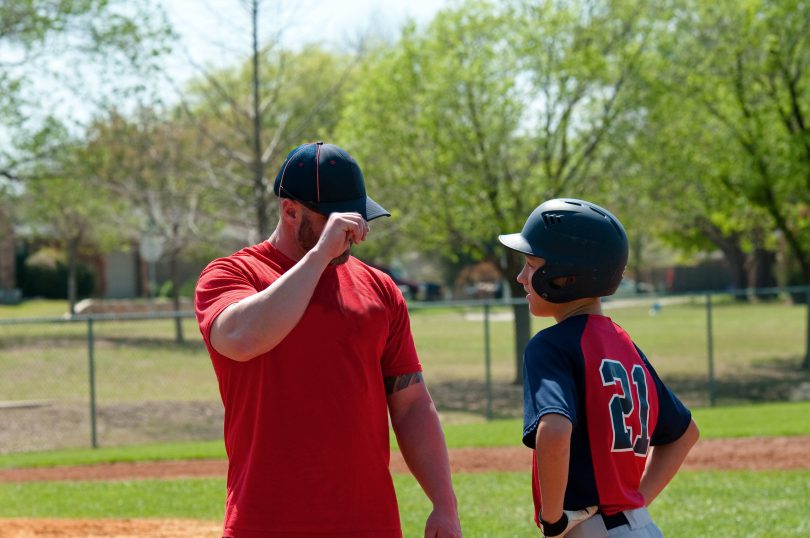High School Coaches Corner are blog posts for high school coaches who want to learn, improve, and help their players move on to play in college. Keep Playing Baseball has many resources for coaches of all levels from recruiting tips to player development and the mental game.
As a high school baseball coach, you can make a huge difference in whether or not your players play in college. It starts by doing your part to create an enjoyable experience, develop skill and relationships, and assist with creating exposure, but there are many other things you can do to help your players along the way. Taking the time to meet with players, making or returning a phone call to a college coach, or even just talking to your players about different college baseball options can be instrumental in helping your players get to the next level. Here are some important things to remember:
- Give your players your honest and objective view of their skills. If you don’t think they are capable of playing Division 1 baseball, tell them about the alternatives. There are ways to do this without breaking down a player. For example, “Look Tom, I’m going to be honest with you. Right now you aren’t a D1 player in my mind. If that is the level you want to play at, you need to gain 10-15 pounds, work on your defense, and get better at executing on offense. There are other options for you if D1 doesn’t work out. Why don’t we sit down together and talk about a few other options that may be a fit.”
- Return phone calls, emails, and questionnaires. While this work may seem tedious, college coaches are always interested in getting the opinions of players’ current coaches. Taking 5-10 minutes to answer questions about your player or email back a schedule or pitching rotation could make a huge difference in a player’s life. With texting, things have become even easier to keep college coaches in the loop. Your input is incredibly valuable as the only coach who gets to see them in a school setting. Your players will appreciate your efforts, possibly for the rest of their lives. I still speak with my high school and summer ball coaches and am very grateful for the work they did for me and my teammates.
- Make calls or send emails on behalf of your players. If you think a player is a good fit for a college program or a player expresses interest in a program you feel is a good fit, shoot the coach a quick email mentioning your player and why you think he would be a good fit. It is important to do this objectively in order to build credibility. If you refer a guy who is not a D1 player to a top D1 school, that college coach is likely to dismiss future emails from you. Here’s an example of a quick referral email: “Hey Coach ___, I’ve got a kid who might be a good fit for your program. He’s a great student (3.9 GPA) and his fastball sits between 87-90 with good command of two pitches. His slider is still a work in progress, but he can throw it for strikes in any count. Attached is my contact information. Please let me know if I can be of any assistance. He’ll pitch in relief at our home game on Wednesday. Thanks for your time.”
- Motivate your players. Show them clips of college baseball. Bring former players back to speak with them. Take them to a college games near you or even tell them your own college baseball stories. There are a plethora of YouTube clips that will motivate and fire up your players. This will not only help your players get better individually, but it will help your team grow and be successful. Make talking about college baseball a part of your daily efforts. If you talk about it, your players will think about it. If they think about it, they’ll get curious about it. Once they look into it, they’ll want to play college ball.
- Treat your star player the same way you treat the last guy on your bench. High school is a time when kids develop and grow. The last guy on your bench this year could be the star of your team next year. It is important not to play favorites and to hold all players accountable. If your star player works his butt off, the last guy on the bench will see what it takes to be great and do his best to match his intensity and work ethic.
Remember, high school kids are very malleable, so this is a great time to instill hard work, positive mental attitude, and focus into their lives. I don’t have to tell you, those lessons can make a big difference for your players, on and off the field.







